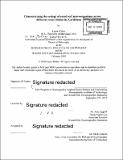| dc.contributor.advisor | Amy Apprill. | en_US |
| dc.contributor.author | Weber, Laura(Laura G.) | en_US |
| dc.contributor.other | Joint Program in Oceanography/Applied Ocean Science and Engineering. | en_US |
| dc.contributor.other | Massachusetts Institute of Technology. Department of Biology. | en_US |
| dc.contributor.other | Woods Hole Oceanographic Institution. | en_US |
| dc.coverage.spatial | cc----- | en_US |
| dc.date.accessioned | 2020-11-23T17:40:28Z | |
| dc.date.available | 2020-11-23T17:40:28Z | |
| dc.date.copyright | 2020 | en_US |
| dc.date.issued | 2020 | en_US |
| dc.identifier.uri | https://hdl.handle.net/1721.1/128592 | |
| dc.description | Thesis: Ph. D., Joint Program in Oceanography/Applied Ocean Science and Engineering (Massachusetts Institute of Technology, Department of Biology; and the Woods Hole Oceanographic Institution), 2020 | en_US |
| dc.description | Cataloged from PDF of thesis. | en_US |
| dc.description | Includes bibliographical references. | en_US |
| dc.description.abstract | Microorganisms sustain the high productivity of coral reefs and support one of the most diverse, valuable, and threatened ecosystems on Earth. Despite the importance of reef microorganisms, there is a lack of understanding about their ecology, especially on Caribbean reefs. Furthermore, the hastening degradation of reefs due to anthropogenic stressors has made it difficult to understand natural patterns in microbial communities in the context of larger-scale ecosystem changes. | en_US |
| dc.description.abstract | Using genomics and metabolomics approaches paired with biogeochemical and physicochemical measurements as well as quantification of cell abundances, this dissertation provides optimized methods for studying the coral microbiome, investigates potential interactions between corals and seawater microorganisms, measures changes in the composition and diversity of reef seawater microorganisms over different spatial and temporal scales, and provides baseline information about microbial ecology, biogeochemistry, and metabolite compositions of a protected and relatively-healthy Cuban coral reef-system to fill these critical knowledge gaps. I found that coral species and reef location influenced the composition of bacteria and archaea within the seawater surrounding coral colonies and this seawater was enriched with microbial colonization and interaction genes, providing evidence of a distinct microbial environment surrounding corals named the coral ecosphere. | en_US |
| dc.description.abstract | In a separate study, diel and daily variation superseded spatial variation in terms of influencing shifts in the microbial community. At a larger scale, seawater microbial communities collected from the protected reef-system of Jardines de la Reina, Cuba had higher alpha diversity and community similarity, lower nutrient concentrations, and higher abundances of picocyanobacteria compared to less protected reef-systems within Los Canarreos, Cuba and the Florida Keys, U.S.A and seawater microbial communities collected from each reef-system were influenced by hydrogeography and environmental gradients. Lastly, the extracellular metabolite composition of reef seawater collected across Jardines de la Reina was highly similar, suggesting homogenous environmental and hydrogeographic conditions across these forereefs. | en_US |
| dc.description.abstract | Overall, this dissertation characterizes reef seawater microbial communities across different scales and provides novel, baseline information about a protected and understudied Cuban reef-system, offering critical information about the ecology of reef microorganisms within the Caribbean. | en_US |
| dc.description.statementofresponsibility | by Laura Weber. | en_US |
| dc.format.extent | 322 pages | en_US |
| dc.language.iso | eng | en_US |
| dc.publisher | Massachusetts Institute of Technology | en_US |
| dc.rights | MIT theses may be protected by copyright. Please reuse MIT thesis content according to the MIT Libraries Permissions Policy, which is available through the URL provided. | en_US |
| dc.rights.uri | http://dspace.mit.edu/handle/1721.1/7582 | en_US |
| dc.subject | Joint Program in Oceanography/Applied Ocean Science and Engineering. | en_US |
| dc.subject | Biology. | en_US |
| dc.subject | Woods Hole Oceanographic Institution. | en_US |
| dc.title | Characterizing the ecology of coral reef microorganisms across different scales within the Caribbean | en_US |
| dc.type | Thesis | en_US |
| dc.description.degree | Ph. D. | en_US |
| dc.contributor.department | Joint Program in Oceanography/Applied Ocean Science and Engineering | en_US |
| dc.contributor.department | Massachusetts Institute of Technology. Department of Biology | en_US |
| dc.contributor.department | Woods Hole Oceanographic Institution | en_US |
| dc.identifier.oclc | 1220931125 | en_US |
| dc.description.collection | Ph.D. Joint Program in Oceanography/Applied Ocean Science and Engineering (Massachusetts Institute of Technology, Department of Biology; and the Woods Hole Oceanographic Institution) | en_US |
| dspace.imported | 2020-11-23T17:40:27Z | en_US |
| mit.thesis.degree | Doctoral | en_US |
| mit.thesis.department | Bio | en_US |
